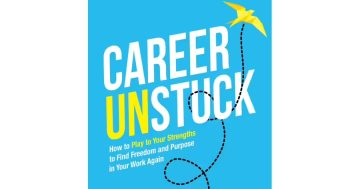Most of us are prone to the envy of others from time to time, but Amanda Setili* warns that envy can often be based on wrong information and is almost always counterproductive.
 You love your house. It has a warm and welcoming environment and is set up to work perfectly for your family’s needs.
You love your house. It has a warm and welcoming environment and is set up to work perfectly for your family’s needs.
Then one day a colleague — slightly junior to you at work — invites you over to their place, which you are surprised to discover is larger and more attractive than yours, and in a ‘better’ neighbourhood.
A tiny bit of doubt starts to gnaw at you.
“How did they get what I don’t have?” can be an insidious question. It’s rooted in envy, rather than emotions and aspirations that are positive.
Few — if any — of us are immune to feeling this way from time to time.
In my case, there are moments when I wonder why another consultant might have a larger income than I do, or how they managed to secure an assignment that I would have liked.
Very occasionally, such thoughts can be productive.
If I can pick up a strategy or tactic that someone else has leveraged, that’s useful. Learning from others’ successes is helpful and positive, but envy is often negative.
Envy side-tracks us from our core purpose. It can start a distracting loop in our heads that keeps us from focusing on what we really want to create and do.
As a leader, you are responsible for the performance of other people, all of whom have egos, emotions, ambitions and responsibilities.
It’s only human for them to compare compensation levels, their respective rates of advancement, the praise they are receiving, and who gets the ear of senior management.
In many cases, they lack information that you possess, and this causes them pain.
To cite one simple example, Dan may find out that his compensation was flat while Arthur received a seven per cent increase.
Dan views his performance as better than Arthur’s, and this upsets him so much that he is tempted to quit.
He doesn’t know what you do, which is that Arthur’s compensation has been unfairly low for years, and you are trying to rectify this issue.
By the way, Arthur’s compensation is still lower than Dan’s.
You can’t eliminate the presence of envy or the prevalence of social comparisons, but you can increase your awareness of this aspect of human life.
The more transparent you are with your decisions, actions and even your values, the less energy you — and your team members — are likely to waste on unproductive thoughts and emotions.
*Amanda Setili helps successful leaders and their teams agree on what needs to change and how to make it happen. She is author of Fearless Growth: The New Rules to Stay Competitive, Foster Innovation, and Dominate Your Markets. Amanda can be contacted at www.setili.com.
This article first appeared on Amanda’s website.











